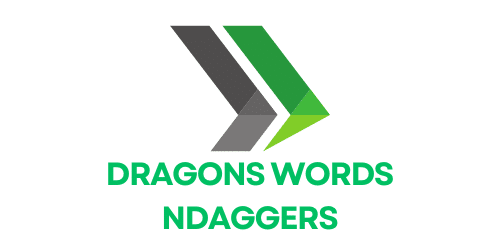How to Prepare UK Businesses for the Post-Brexit Data Regulation Landscape?

The UK’s departure from the European Union, a seismic event popularly referred to as Brexit, has had wide-ranging implications for businesses, especially regarding data protection and privacy regulations. This article will dive into the new data regulatory landscape UK businesses find themselves in, post-Brexit. We will look at what it means for businesses, how GDPR compliance is affected, and, critically, how you can prepare for the changes to stay on the right side of the law.
Understanding the Brexit Effect on Data Regulation
Brexit has significantly changed the way personal data is handled by UK businesses. With the end of the transition period on 31st December 2020, the European Union’s stringent General Data Protection Regulation (GDPR) no longer applies directly to the UK. It means that businesses must navigate a new regulatory landscape with due diligence and caution.
En parallèle : 12 best georgia registered agents reviewed for 2024
The UK has adopted its version of the GDPR, known as the UK GDPR. This legislation largely mirrors the EU GDPR, with some minor amendments. However, the UK’s data protection law may evolve independently over time, creating potential divergence from the European standard. This divergence could result in additional compliance burdens for businesses that trade with the EEA (European Economic Area).
Moreover, Brexit has also impacted the mechanisms for transferring personal data between the EEA and the UK. Prior to Brexit, data transfers between EEA countries and the UK were devoid of restrictions under the GDPR. However, post-Brexit, the UK is considered a ‘third country,’ which mandates additional safeguards for data transfers from the EEA.
Cela peut vous intéresser : How to Build a Community-Driven Brand in the UK Sustainable Fashion Industry?
New Data Protection Landscape: Impact on Businesses
The changes in data regulation due to Brexit have serious implications for businesses. If your business has a presence in the EEA or if you offer goods or services to individuals in the EEA, you’ll need to review your data protection practices.
For example, businesses may need to incorporate Standard Contractual Clauses (SCCs) into contracts to legitimise data transfers from the EEA to the UK. Processing personal data from the EEA may also require businesses to appoint a representative in the EEA, as per Article 27 of the EU GDPR.
Moreover, businesses need to update their privacy notices and other information provided to data subjects to reflect the changes in law. They should clarify their legal basis for processing personal data, the rights of data subjects, and how data subjects can exercise their rights. It’s crucial for businesses to be transparent about these changes to maintain trust and compliance.
Complying with the GDPR Post-Brexit
Despite Brexit, the GDPR remains a key piece of legislation for many UK businesses. If your business operates within the EEA or processes personal data of EEA subjects, you are still required to comply with the GDPR.
The UK GDPR and the EU GDPR are largely similar in terms of their core principles, rights, and obligations. Thus, if your business was compliant with the EU GDPR before Brexit, it’s likely you’re still meeting many of your UK GDPR obligations.
However, there are differences that businesses need to be aware of. For instance, the UK has different rules on international data transfers and has additional exemptions compared to the EU GDPR. Businesses need to stay updated on these differences to avoid regulatory penalties.
Navigating Data Transfers in the Post-Brexit Era
The issue of data transfers is perhaps one of the most complex areas of data protection law affected by Brexit. As of 27/03/2024, while the EU has granted the UK an adequacy decision, allowing data to flow freely from the EEA to the UK, the adequacy decision is not permanent and can be revoked.
Furthermore, data transfers from the UK to the EEA are currently permitted under UK law. However, data transfers from the UK to other ‘third countries’ are subject to UK transfer rules, which align with the EU’s data transfer rules. Businesses must ensure they have appropriate mechanisms in place, such as SCCs or Binding Corporate Rules (BCRs), to legitimise these transfers.
Preparing for the Future: Staying Compliant with Data Regulations
The key to navigating the post-Brexit data protection landscape is to stay informed and proactive. Regularly review and update your data protection policies and practices. Keep an eye on the guidance issued by the UK Information Commissioner’s Office (ICO) and the European Data Protection Board (EDPB).
Consider undertaking a data protection impact assessment to identify any areas of your data processing activities that may potentially be in breach of the new regulations. Such assessments can help you mitigate risks and ensure ongoing compliance.
Remember that data protection is not a one-time task but an ongoing obligation. Your commitment to data protection needs to be embedded in your business culture and be visible in your practices.
Brexit Data Regulation Changes: The Role of the European Commission and the Adequacy Decision
The role of the European Commission has been crucial in shaping the post-Brexit data regulation landscape. When the UK left the EU, it was designated as a ‘third country.’ This status raised concerns about the transfer of personal data from the EU to the UK, which necessitated an adequacy decision from the European Commission.
An adequacy decision is the European Commission’s confirmation that a third country has an acceptable level of data protection. This decision allows for the free flow of personal data from the EU to the third country without additional safeguards. As of 27/03/2024, the EU has granted the UK an adequacy decision, easing some of the challenges related to data transfers post-Brexit.
However, it’s essential to remember that this adequacy decision is not permanent and can be revoked. For instance, if the UK diverges significantly from the EU’s data protection standards, the adequacy decision could be withdrawn. Consequently, businesses must prepare for this possibility and have contingency plans in place.
Moreover, the transition period following Brexit has ended, and UK businesses must now operate under new data regulations. These include the UK GDPR, along with other UK-specific data protection laws. Businesses need to be vigilant about these changes and ensure they modify their data protection policies and procedures as required.
Data Governance and Security: Ensuring Compliance Post-Brexit
In the post-Brexit scenario, data governance and security have become increasingly important for businesses in the UK. Ensuring compliance with the new data regulations requires a sound data governance strategy. Businesses must have clear policies in place for data collection, processing, storage, and transfer. They also need to ensure the security of personal data at all stages of the data lifecycle.
One key area of focus should be the supply chain. If your business works with suppliers or partners who process personal data on your behalf, you need to ensure they are also compliant with the new regulations. For instance, if data is transferred from the EU to the UK via a supplier or partner, they must have the right mechanisms in place, such as Standard Contractual Clauses.
Additionally, businesses must have robust data security measures in place. This includes encryption, anonymisation, and pseudonymisation of personal data, among other techniques. Businesses should regularly review and update these measures to protect against data breaches and other security threats.
In conclusion, the post-Brexit era presents a new data regulation landscape for UK businesses. While there are challenges, businesses can navigate these changes successfully by staying informed, being proactive, and maintaining a strong commitment to data protection and privacy. It’s important to remember that data protection is not just an obligation but a way to build trust with customers and stakeholders.
Conclusion
Navigating the post-Brexit landscape of data protection regulations requires a proactive and informed approach from UK businesses. With the UK now classified as a ‘third country’, businesses must ensure both the seamless transfer of personal data and adherence to the UK’s own GDPR. Regular reviews and updates of data protection policies, aligning with guidance from the UK Information Commissioner’s Office (ICO) and the European Data Protection Board (EDPB), can help businesses stay compliant.
While the current adequacy decision allows for data to flow freely from the EEA to the UK, it is essential to keep in mind that this is not permanent. Any significant divergence from the EU’s data protection standards could lead to the revocation of this adequacy decision. Preparing contingency plans for such a scenario and ensuring robust data governance and security measures are in place will be crucial.
Ultimately, the commitment to data protection and privacy should not be seen as merely a legal obligation but as an integral part of a business’s strategy and culture. A strong commitment to data protection can build trust with customers and stakeholders, proving to be a significant asset in the post-Brexit era.
